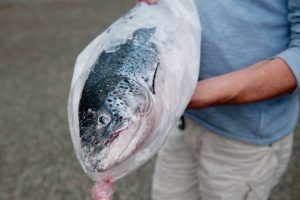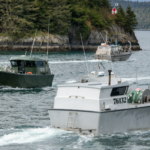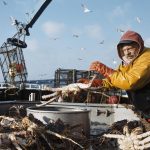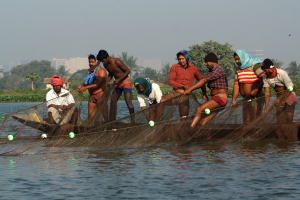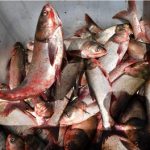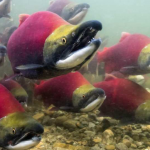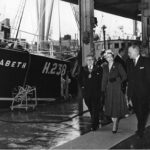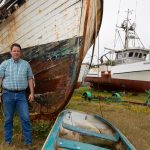Tag Archives: Canfisco
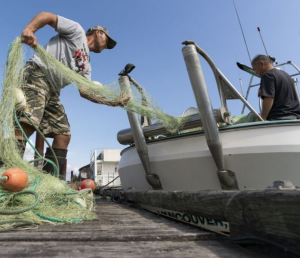
Sweeping reforms to licences, quotas, and equal footing, Standing Committee urges massive overhaul
The committee is recommending sweeping changes to the way commercial fishing licences and quota are owned in B.C. to address concerns of monopolization — including quota ownership by foreign investors who might never have set foot on a fishing boat or in Canada — that has turned commercial fishing in B.C. into “a modern day feudal system.” While commercial fishermen in B.C. applaud the committee’s recommendations, it may not sit well with corporate owners such as Jimmy Pattison’s Canadian Fishing Company, which owns a significant amount of fish quota in B.C. >click to read<12:55
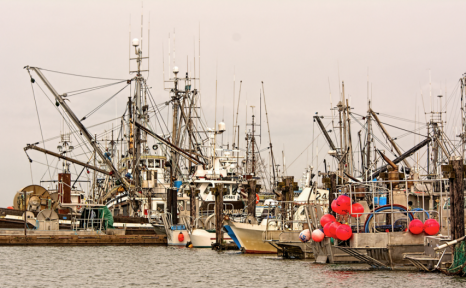
Sweeping reforms to West Coast fisheries recommended
Canada’s West Coast fishery could be in for a sea change, if Parliament accepts and implements 20 recommendations being made by the Standing Committee on Fisheries and Oceans.,,, recommending sweeping changes to the way commercial fishing licences and quota are owned in B.C.,,, including quota ownership by foreign investors who may never have set foot on a fishing boat or in Canada – that has turned commercial fishing in B.C. into “a modern day feudal system.” “The direction that the industry is going is driving the independent harvester – the small boat fisherman, the Ma and Pa operations – out of business on the coast.” The ownership of licences and quota in B.C. is different from Atlantic Canada and Alaska, where the people who do the fishing – commercial boat owners – tend to own the licences and quota. >click to read<23:14
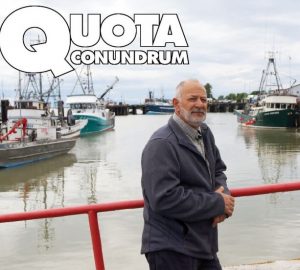
Canfisco hopes to defend quota system at Ottawa committee
Richmond-based Canfisco hopes to present to a new Standing Committee on Fisheries and Oceans examining West Coast fishery regulations come next February, at the latest. Rob Morley, vice-president, production and corporate development at Canadian Fishing Company (Canfisco), told the Richmond News Monday that the present licensing and quota system so often criticized by the likes of independent fishers and environmental groups has merits. There is growing concern — including Liberal MP Ken Hardie, who requested the committee — that licenses and quotas are becoming too expensive to lease and prohibitively expensive to purchase. As such, capital-rich companies and investors are taking fishing profits from community-based fishers. >click to read<08:25

Offshore ‘slipper skippers’ and local monopolies target of new fishing industry study
If you have ever purchased fish at Fisherman’s Wharf, there’s a 50/50 chance the bulk of your money will make its way into the pockets of an investor, who may not even be able to pinpoint Steveston on a map. Such investors, both foreign and domestic, own government-issued quotas and licenses and lease them to fishers for a cut of the catch. Because profit margins for fishers are already razer thin, the extra costs of the quotas and licenses means young, new and independent fishers find it difficult to get a foothold in the industry. This regulatory system is being called into question by Fleetwood Port Kells Liberal MP Ken Hardie. Fishers have long complained about the ownership structure of licences and individual transferable quotas (ITQs), or catch shares,,>click to read< 20:08
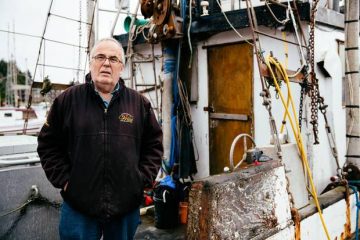
Seeking an elusive, expensive catch: quotas
Dan Edwards was raised in a British Columbia household of eight kids, supported by fishing – as the family had been for generations. “It was never an easy life,” Mr. Edwards says. “My father and grandfather worked hard. But they made a living – fishing.”,,, But what really makes fishing unprofitable for many Pacific fishermen is that about 70 per cent of the landed value (or gross revenue) of their catch can go to pay the owner of the fish. And the owner is not the province, the country, the Queen nor Njoror, the Norse god of the sea. The effective owner of B.C.’s fish is the holder of the individual transferable quota for catching them. >click to read< 22:14
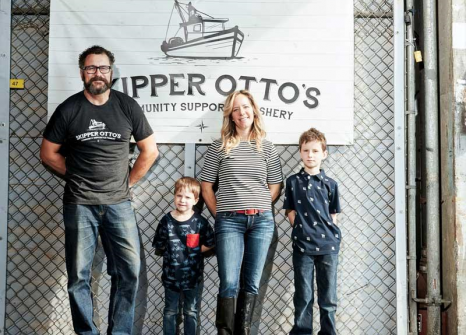
Fish feud: ITQ’s – Will changes to the West Coast salmon industry hurt or help independent fishermen?
The B.C. salmon fishery keeps resisting a market-based management system. Critics accuse the feds of pitting independent fishermen against corporate giants, but what if this new approach gives the little guy some much-needed financial clout?,,, Thorkelson gets furious thinking about how fishing rights and control, thanks to what she considers a concerted effort by the DFO to impose ITQs, have migrated up the food chain to the likes of Canadian Fishing Co. Part of the Jim Pattison Group, Canfisco is a vertically integrated company that owns licences, quota and fishing vessels in most fisheries on the coast, plus processing facilities in B.C. and Alaska that together handle some 20,000 tonnes of salmon annually. click here to read the story 09:03
Nathan Cullen wants changes to the fisheries system in the North West of Canada
 The fisheries system in the North West of Canada needs an overhaul. That was the message from the Skeena-Bulkley Valley MP, Nathan Cullen, last week when he spoke with media. An incident between a few fishermen and Department of Fisheries and Oceans (DFO) officers on Aug. 2 has increased tensions in the area, and Canfisco Oceanview plant saw an increased presence of officers. Frustration is mounting over the changing regulations and restrictive fishing methods, and allowing certain user groups to fish down the coast, a DFO spokesperson stated two weeks ago.,, His answer is to sit down with DFO and the fisheries minister and reform the fishery. Some of the changes he’d like to see already exist on the East Coast. One example he gave was the owner-operator policy in the Atlantic, where commercial fishing licences are held by an individual or the licence holders’s company. Read the story here 20:26
The fisheries system in the North West of Canada needs an overhaul. That was the message from the Skeena-Bulkley Valley MP, Nathan Cullen, last week when he spoke with media. An incident between a few fishermen and Department of Fisheries and Oceans (DFO) officers on Aug. 2 has increased tensions in the area, and Canfisco Oceanview plant saw an increased presence of officers. Frustration is mounting over the changing regulations and restrictive fishing methods, and allowing certain user groups to fish down the coast, a DFO spokesperson stated two weeks ago.,, His answer is to sit down with DFO and the fisheries minister and reform the fishery. Some of the changes he’d like to see already exist on the East Coast. One example he gave was the owner-operator policy in the Atlantic, where commercial fishing licences are held by an individual or the licence holders’s company. Read the story here 20:26
Debate over closing of B.C. salmon cannery goes to federal committee
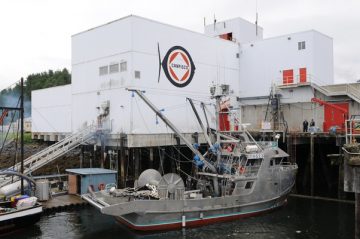 The debate over the closing of B.C.’s last salmon-canning operation shifted to Ottawa this month, where a federal committee heard sharply differing opinions on the issue. While the union representing plant workers decried changes at the Oceanside Cannery in Prince Rupert and called for new policies in response, the plant’s owner maintained relatively few jobs would be affected and that no policy changes are required. The committee also heard consumer tastes are shifting to fresh and frozen fish over the canned product that was once a mainstay on the B.C. coast. “Maintaining a large plant with many canning lines for limited production was not viable,” Rob Morley, vice-president of Canadian Fishing Co., told the standing committee on fisheries and oceans earlier this month. Read the story here 14:04
The debate over the closing of B.C.’s last salmon-canning operation shifted to Ottawa this month, where a federal committee heard sharply differing opinions on the issue. While the union representing plant workers decried changes at the Oceanside Cannery in Prince Rupert and called for new policies in response, the plant’s owner maintained relatively few jobs would be affected and that no policy changes are required. The committee also heard consumer tastes are shifting to fresh and frozen fish over the canned product that was once a mainstay on the B.C. coast. “Maintaining a large plant with many canning lines for limited production was not viable,” Rob Morley, vice-president of Canadian Fishing Co., told the standing committee on fisheries and oceans earlier this month. Read the story here 14:04
Fish plant workers: stop gutting West Coast fishery
 Specifically, United Fishermen and Allied Workers’ Union, were lobbying the parliamentary standing committee on fisheries and oceans to break what they describe as a monopoly held by Jim Pattison and his Canadian Fishing Co. (Canfisco) on fishing fleets, quotas and licences. They also want the government to restrict the practice of sending fish caught in B.C. for secondary processing to the U.S. or China. “The processing of fish that is owned by the people of Canada should benefit the people of Canada,” Arnie Nagey, a Haida citizen who worked as a millwright in Canfisco’s Prince Rupert cannery, told the committee June 7. “The boats should be owned by the people who fish them, not the company.” North coast fish plant workers want adjacency rules, which would require fish caught in Canadian waters to be processed in Canada. But that would likely trigger challenges under the North American Free Trade Agreement, said Rob Morley, Canfisco’s vice-president of product and corporate development. Read the rest here 13:37
Specifically, United Fishermen and Allied Workers’ Union, were lobbying the parliamentary standing committee on fisheries and oceans to break what they describe as a monopoly held by Jim Pattison and his Canadian Fishing Co. (Canfisco) on fishing fleets, quotas and licences. They also want the government to restrict the practice of sending fish caught in B.C. for secondary processing to the U.S. or China. “The processing of fish that is owned by the people of Canada should benefit the people of Canada,” Arnie Nagey, a Haida citizen who worked as a millwright in Canfisco’s Prince Rupert cannery, told the committee June 7. “The boats should be owned by the people who fish them, not the company.” North coast fish plant workers want adjacency rules, which would require fish caught in Canadian waters to be processed in Canada. But that would likely trigger challenges under the North American Free Trade Agreement, said Rob Morley, Canfisco’s vice-president of product and corporate development. Read the rest here 13:37
British Columbia’s Canfisco workers seek Ottawa’s help to save jobs
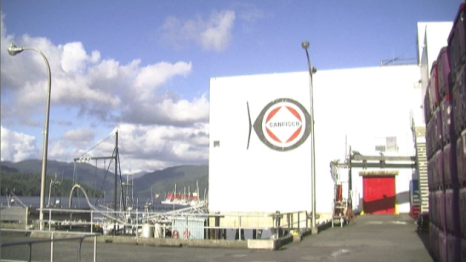 As B.C.’s commercial fishing season gets under way, the union representing workers at B.C.’s last fish cannery has made a public plea to the federal government to save their jobs. In a seven-minute video released on Wednesday, members of UFAWU-Unifor, which represents workers in fishing, processing and transport in B.C., describe the Prince Rupert plant’s history, its connection to First Nations culture and communities and the ripple effects of growing concentration in the fish-processing business. “Our government has failed us. They have allowed north coast herring to be exported to China for processing,” Video, Read the rest here 08:04
As B.C.’s commercial fishing season gets under way, the union representing workers at B.C.’s last fish cannery has made a public plea to the federal government to save their jobs. In a seven-minute video released on Wednesday, members of UFAWU-Unifor, which represents workers in fishing, processing and transport in B.C., describe the Prince Rupert plant’s history, its connection to First Nations culture and communities and the ripple effects of growing concentration in the fish-processing business. “Our government has failed us. They have allowed north coast herring to be exported to China for processing,” Video, Read the rest here 08:04
Petition: Revoke Jim Pattison’s Canfisco’s parasitic monopoly of fishing licenses
 The largest salmon cannery in Canada, owned by one of Canada’s richest men, Jim Pattison — is closing its processing plant in Prince Rupert, leaving 500 people out of work. Now, workers in Prince Rupert are demanding that the federal government revoke the fishing license for Canfisco and instead give these licenses to local fishermen to create local jobs. The fish caught off the coast of BC should create jobs in local BC communities. If Canfisco won’t create these jobs, then they have lost the social license needed to keep their fishing license. Read and sign the Petion here 10:23
The largest salmon cannery in Canada, owned by one of Canada’s richest men, Jim Pattison — is closing its processing plant in Prince Rupert, leaving 500 people out of work. Now, workers in Prince Rupert are demanding that the federal government revoke the fishing license for Canfisco and instead give these licenses to local fishermen to create local jobs. The fish caught off the coast of BC should create jobs in local BC communities. If Canfisco won’t create these jobs, then they have lost the social license needed to keep their fishing license. Read and sign the Petion here 10:23
Simple greed shut down cannery: Nobels
 The Skeena Queen Charlotte Regional District is demanding a higher stake in the region’s salmon resources, calling for a return to abandoned policies that protected communities precisely from those such as Canfisco’s closure of Prince Rupert’s salmon cannery. Vice chair and director of Area A, Des Nobels, wasted no time at the last regular meeting to blame the of simple greed for the hundreds of lost jobs at the Canfisco cannery. Read the article here 20:14
The Skeena Queen Charlotte Regional District is demanding a higher stake in the region’s salmon resources, calling for a return to abandoned policies that protected communities precisely from those such as Canfisco’s closure of Prince Rupert’s salmon cannery. Vice chair and director of Area A, Des Nobels, wasted no time at the last regular meeting to blame the of simple greed for the hundreds of lost jobs at the Canfisco cannery. Read the article here 20:14
Canfisco cannery closing operations in Prince Rupert
 In another blow to fisheries on B.C.’s north coast, Canfisco says it will cease canning operations in Prince Rupert. More than 500 jobs could be lost at what was once the world’s largest cannery, with the falling demand for canned salmon blamed for the company’s decision. “We’re moving more to fresh and frozen products,” Rob Morley, vice president of production and corporate development for Canfisco told CBC News. Read the rest here 13:35
In another blow to fisheries on B.C.’s north coast, Canfisco says it will cease canning operations in Prince Rupert. More than 500 jobs could be lost at what was once the world’s largest cannery, with the falling demand for canned salmon blamed for the company’s decision. “We’re moving more to fresh and frozen products,” Rob Morley, vice president of production and corporate development for Canfisco told CBC News. Read the rest here 13:35

































